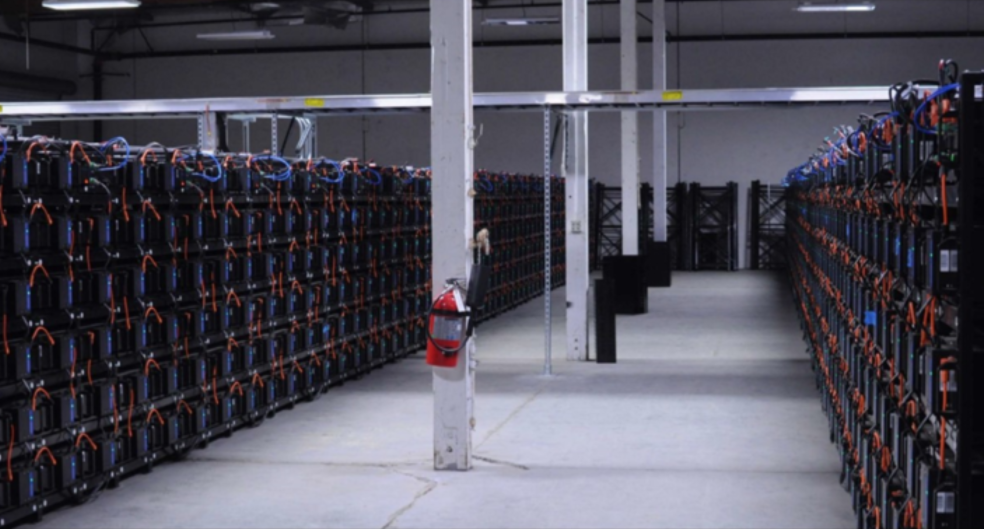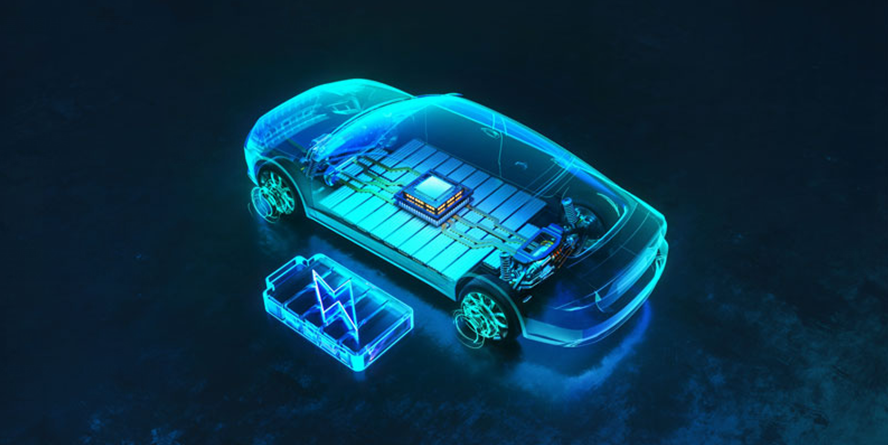Revolutionizing Energy Management: The Power of Smart Grids and Lithium Batteries
Introduction
The demand for energy is constantly increasing, and traditional energy management systems are struggling to keep up. However, with the advent of smart grids and the ever-improving technology of lithium batteries, a new era of energy management is dawning. This article explores the potential of these two innovations in revolutionizing energy management.
Smart Grids: The Backbone of Future Energy Management
Smart grids are advanced energy management systems that integrate various technologies, such as renewable energy sources, advanced metering infrastructure, and real-time data analytics. These grids enable efficient monitoring, control, and optimization of electricity generation, distribution, and consumption. By gathering and analyzing vast amounts of data, smart grids can detect patterns, identify inefficiencies, and make intelligent decisions to improve energy management.
One of the key advantages of smart grids is their ability to accommodate renewable energy sources, such as solar and wind power. Unlike traditional grids, smart grids can handle the intermittent nature of these sources by dynamically balancing supply and demand. They can automatically adjust the flow of electricity based on real-time conditions, ensuring optimal utilization of renewable energy without compromising reliability.
Moreover, smart grids enable demand response programs, allowing consumers to actively participate in energy management. Through real-time pricing information and automated control systems, consumers can adjust their energy consumption based on price signals, reducing their energy bills and contributing to the stability of the grid. This demand-side flexibility helps in the integration of intermittent renewable energy sources and reduces the need for additional fossil fuel-based power plants.
Lithium Batteries: Empowering Energy Storage
Energy storage is a crucial component of efficient energy management. It enables the storage of excess energy during periods of low demand and its utilization during peak demand or when renewable sources are unavailable. Lithium batteries have emerged as the preferred technology for energy storage due to their high energy density, long cycle life, and fast charging capability.
Lithium batteries can be deployed at various scales, ranging from residential to utility-scale applications. At the residential level, these batteries can store surplus solar energy generated during the day for use during the night, reducing reliance on the grid and lowering electricity bills. They can also act as backup power during electricity outages, providing uninterrupted power supply to critical appliances.
On a larger scale, lithium batteries integrated with smart grids can mitigate the challenges associated with the intermittent nature of renewable energy sources. They can store excess renewable energy during periods of high generation and discharge it during times of low generation, ensuring a stable power supply. This energy shifting capability helps in reducing the need for costly grid infrastructure upgrades and fossil fuel-based backup power plants.
Lithium batteries also play a vital role in smoothing out the fluctuations in energy demand. By discharging stored energy during peak demand periods, they can reduce strain on the grid and prevent blackouts or brownouts. This flexibility in energy supply and demand management contributes to a more reliable and resilient energy infrastructure.
Smart Grids and Lithium Batteries: A Synergistic Partnership
The true potential of revolutionizing energy management lies in the synergy between smart grids and lithium batteries. Smart grids provide the intelligence and control required for efficient energy management, while lithium batteries enable the storage and utilization of excess energy. When combined, these technologies create a dynamic and responsive energy ecosystem.
The integration of smart grids and lithium batteries can unlock numerous benefits. It can enable higher penetration of renewable energy sources, reduce greenhouse gas emissions, and enhance the reliability and resilience of the grid. Furthermore, it can empower consumers to actively participate in energy management, leading to increased energy efficiency and cost savings.
Conclusion
In conclusion, smart grids and lithium batteries have the potential to revolutionize energy management. Smart grids enable efficient monitoring, control, and optimization of energy generation, distribution, and consumption. Lithium batteries, on the other hand, empower energy storage and provide flexibility in handling intermittent renewable energy sources. The synergy between these technologies can lead to a more sustainable, reliable, and consumer-centric energy future. Embracing these innovations is crucial for ensuring a smooth transition towards a cleaner and smarter energy system.
-
 Golf carts have become a popular mode of transportation on golf courses and in residential communities. These electric vehicles provide a convenient and eco-friendly way to get around. However, like any other electric vehicle, golf carts rely on batteries for power. In this article, we will discuss everything you need to know about golf cart batteries. Types of Golf...Read more
Golf carts have become a popular mode of transportation on golf courses and in residential communities. These electric vehicles provide a convenient and eco-friendly way to get around. However, like any other electric vehicle, golf carts rely on batteries for power. In this article, we will discuss everything you need to know about golf cart batteries. Types of Golf...Read more -
 When it comes to camping, one of the most essential items to have is a reliable power source. Whether you want to charge your phone, power up your refrigerator, or run your lights at night, a dependable battery is a must-have. And that's where the Lithium Camper Battery comes in. The Lithium Camper Battery is the ultimate power solution...Read more
When it comes to camping, one of the most essential items to have is a reliable power source. Whether you want to charge your phone, power up your refrigerator, or run your lights at night, a dependable battery is a must-have. And that's where the Lithium Camper Battery comes in. The Lithium Camper Battery is the ultimate power solution...Read more -
 Rail transportation is an important mode of transportation all around the world. It is used for the transportation of people, goods, and raw materials for various industries. The locomotive is the heart of this mode of transportation, and it requires a reliable power source to start and operate. One of the most essential components of a locomotive is the...Read more
Rail transportation is an important mode of transportation all around the world. It is used for the transportation of people, goods, and raw materials for various industries. The locomotive is the heart of this mode of transportation, and it requires a reliable power source to start and operate. One of the most essential components of a locomotive is the...Read more -
 Introduction Communication has become an integral part of our lives. Whether it is sending a text message, making a phone call, or browsing the internet, we rely on various electronic devices to stay connected. However, the efficiency and longevity of these devices heavily depend on the power source they use – batteries. Among the many types of batteries available,...Read more
Introduction Communication has become an integral part of our lives. Whether it is sending a text message, making a phone call, or browsing the internet, we rely on various electronic devices to stay connected. However, the efficiency and longevity of these devices heavily depend on the power source they use – batteries. Among the many types of batteries available,...Read more -
 In today's fast-paced, technology-driven world, wireless keyboards have become an essential tool for productivity and convenience. With the increasing demand for portability and flexibility, the reliance on traditional wired keyboards is decreasing. However, to ensure optimal performance and longevity, wireless keyboards require a reliable and efficient power source. This is where lithium batteries come into play, providing the necessary power...Read more
In today's fast-paced, technology-driven world, wireless keyboards have become an essential tool for productivity and convenience. With the increasing demand for portability and flexibility, the reliance on traditional wired keyboards is decreasing. However, to ensure optimal performance and longevity, wireless keyboards require a reliable and efficient power source. This is where lithium batteries come into play, providing the necessary power...Read more -
 Introduction: The world's increasing demand for electricity has led to the development of smart grids utilizing lithium batteries, which are revolutionizing energy storage. These smart grids are transforming traditional power networks into intelligent systems that can efficiently manage the generation, distribution, and consumption of electricity. This article explores the advantages, challenges, and future prospects of smart grids utilizing lithium batteries....Read more
Introduction: The world's increasing demand for electricity has led to the development of smart grids utilizing lithium batteries, which are revolutionizing energy storage. These smart grids are transforming traditional power networks into intelligent systems that can efficiently manage the generation, distribution, and consumption of electricity. This article explores the advantages, challenges, and future prospects of smart grids utilizing lithium batteries....Read more -
 Today, as the new energy vehicle industry is booming, lithium-ion automotive batteries, as its core component, are gradually becoming a key force in promoting the transformation and upgrading of the automotive industry. In the following, the importance, technological progress, challenges and future prospects of lithium-ion automotive batteries will be explored from several key points. 1. Importance: The core of energy...Read more
Today, as the new energy vehicle industry is booming, lithium-ion automotive batteries, as its core component, are gradually becoming a key force in promoting the transformation and upgrading of the automotive industry. In the following, the importance, technological progress, challenges and future prospects of lithium-ion automotive batteries will be explored from several key points. 1. Importance: The core of energy...Read more


